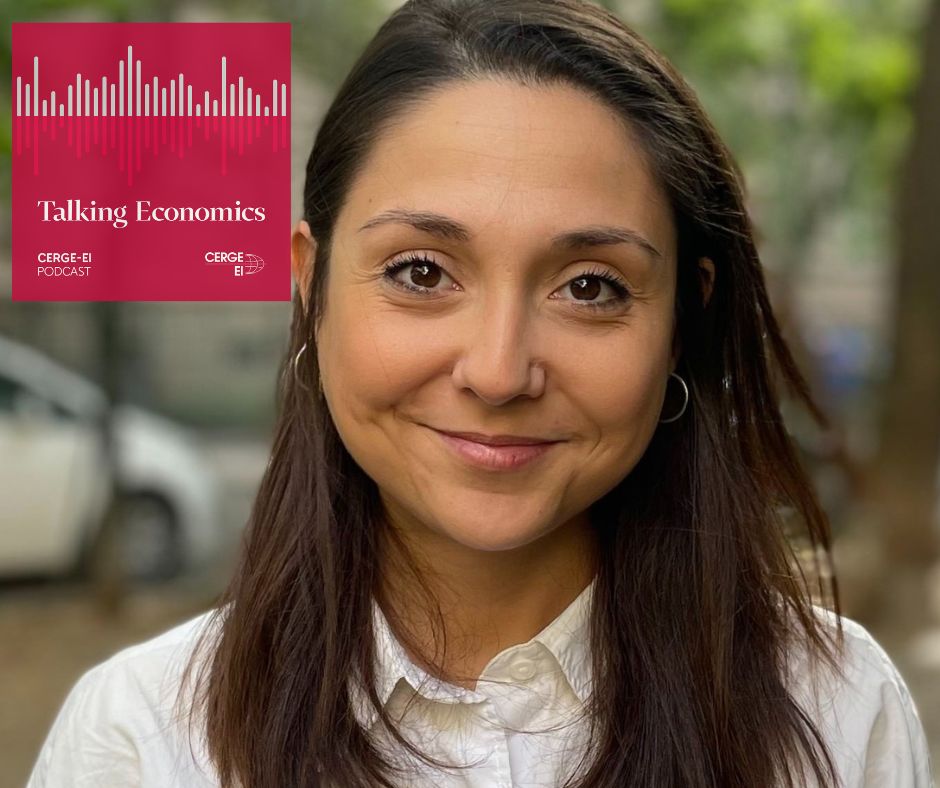What determines the financial decisions we make throughout our lives, like choosing a mortgage, saving for retirement, or deciding whether to invest? In the latest episode of Talking Economics, we explore these questions with Marta Cota, a CERGE-EI PhD alumna and Assistant Professor of Finance at Nova School of Business and Economics in Lisbon.
 Marta’s work emphasizes the importance of policy efforts that address financial literacy, borrower behavior, mortgage market structures, and retirement savings decisions in an integrated manner, enabling individuals to make informed financial choices throughout their lives. Her work focuses on the everyday decisions households face and the long-term effects these choices can have. She offers insights into how financial literacy and expectations influence outcomes, and what we can do to improve them.
Marta’s work emphasizes the importance of policy efforts that address financial literacy, borrower behavior, mortgage market structures, and retirement savings decisions in an integrated manner, enabling individuals to make informed financial choices throughout their lives. Her work focuses on the everyday decisions households face and the long-term effects these choices can have. She offers insights into how financial literacy and expectations influence outcomes, and what we can do to improve them.
One of the key insights from Marta’s research is how financial literacy—especially among women—evolves throughout life. While men tend to maintain relatively steady financial literacy levels, women often experience significant learning gains over time, particularly following major life events such as divorce, widowhood, or inheriting money or a business. These milestones tend to trigger greater financial awareness and independence.
Among other, U.S. data reveals a common division of financial responsibilities within households: women usually manage everyday expenses, whereas men tend to handle longer-term investments. This division can limit women’s exposure to crucial skills like financial planning and investing—skills that are essential for building wealth. Confidence is another critical factor. Even when women answer financial literacy questions correctly, many report low confidence in their knowledge, which discourages them from taking more active roles in managing and investing money.
“Financially illiterate borrowers don’t explore as many options.
They face a cognitive cost when searching, which reduces the effort they invest in shopping around. As a result, they often end up paying more—even when better deals are available.”
Marta’s work also uncovers important patterns in mortgage borrowing. Borrowers with low financial literacy tend to search less extensively for mortgage options, considering fewer lenders. This limited search behavior often results in higher interest rates and a greater risk of delinquency. While financial literacy education in schools is valuable, Marta argues that education is most effective when delivered at moments of real financial decision-making. Key life events—such as buying a first home, going through a divorce, or immigrating to a new country—create natural motivation to learn and make sound financial choices.


















